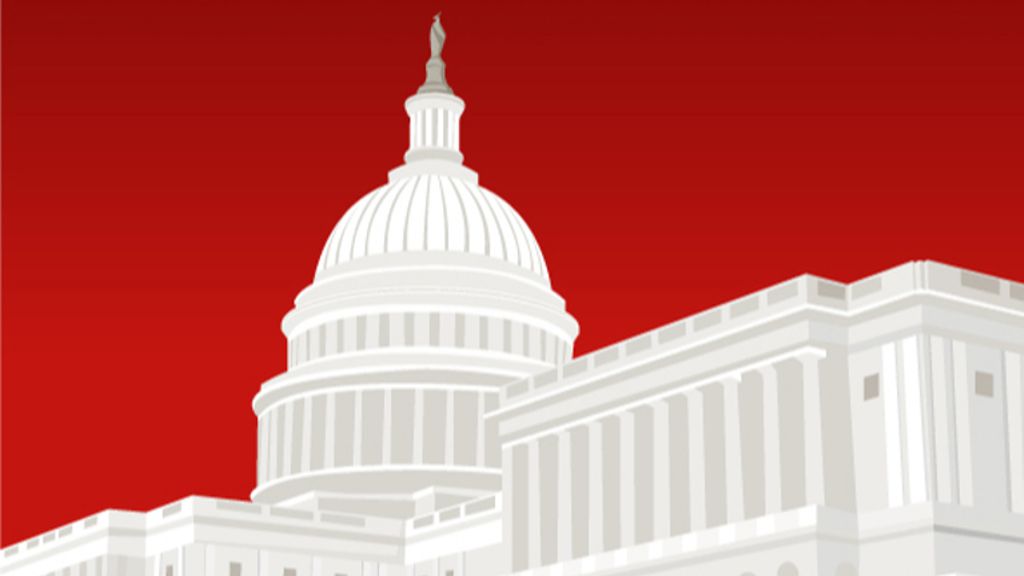
EXECUTIVE SUMMARY
Congressional leaders want to use the budget reconciliation process to enact sweeping changes in labor law. Reconciliation bills cannot be filibustered and can therefore pass on a party-line vote. Congressional rules limit reconciliation bills to measures that affect taxes or spending. Congressional leaders are trying to fit these labor policy reforms into this framework. If they succeed, the reconciliation bill will severely undermine worker freedom. The reconciliation bill’s labor provisions include:
1. Prohibiting staff meetings that discuss union organizing. The draft bill fines employers that hold mandatory staff meetings to discuss union organizing. Employers often use these meetings to educate their employees about the potential downsides of unionizing. Union advocates hope that banning these meetings will make it easier for them to organize firms. But preventing employers from making their case would give workers a skewed perspective. Employees benefit when they hear from both sides before making a major decision.
2. Fines for technical ULPs. The draft bill imposes civil monetary penalties of up to $50,000 for each employer unfair labor practice (ULP). The bill also personally subjects business officers to these fines. This fines would apply to all ULPs, not just serious ULPs like firing a union supporter. Since federal labor law is highly complex, this will expose many employers – especially small businesses – to potentially crippling fines for inadvertent violations. This will give union organizers leverage to pressure employers into forgoing secret ballot elections for their employees.
3. Tax break for funding union political campaigns. The draft bill provides a $250 above-the-line tax deduction for workers who pay full union dues, including the portion of dues that funds union political activities and lobbying. However, unionized workers who pay agency fees – which do not support political activities – cannot take the deduction. This deduction indirectly subsidizes union political campaigns.
4. Tax credit for vehicles made with union labor. The draft bill gives Americans who buy electric vehicles produced by unionized workers a $4,500 tax credit. Americans who buy vehicles made by workers whose employees vote against unionizing could not claim this tax credit. This discriminates against employees on the basis of how they exercise their freedom of association, and encourages employers to deny their employees a secret ballot election before unionizing.
5. Attacks independent contracting. The draft bill increases funding for the Labor Department’s Wage and Hour Division by one-third. This will fund a forthcoming enforcement surge against independent contractors, seeking to reclassify them as employees subject to federal labor laws. Reclassified employees will lose much of the flexibility that independent contracting affords.
6. Prohibits lockouts and permanent replacement workers. The draft bill prohibits employers from locking out employees during labor disputes, or hiring permanent replacement workers during strikes. In the short term, this would increase union bargaining leverage. In the long term, it seems likely to lead unions to negotiate contracts that put unionized employers at a competitive disadvantage, further reducing union membership.
7. Bans class action arbitration agreements. The draft bill prohibits employers and employees from using arbitration to resolve class grievances, requiring such disputes to go through the court system instead. Arbitration is faster and less expensive than litigation, and also generates far fewer attorney fees. This provision will prevent employees from using an effective and efficient mechanism for redressing their rights, while creating opportunities for trial lawyers.
Federal law protects employees’ rights to choose whether to unionize. These proposed policies are designed to instead push workers into unions, whether or not they believe it would benefit them. The policies also prevent workers from using systems like independent contracting or arbitration that benefit them. Worker freedom will suffer if the Senate parliamentarian allows these provisions into the reconciliation bill.
Big Government Reconciliation Bill’s Labor Provisions Undermine Workers’ Freedom PDF
Big-Government-Reconciliation-Labor-Provisions-Undermine-Workers-Freedom-2






